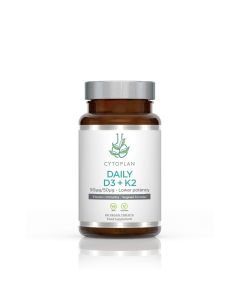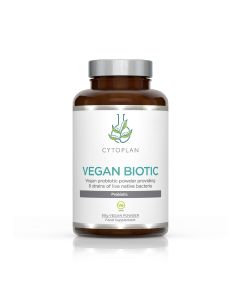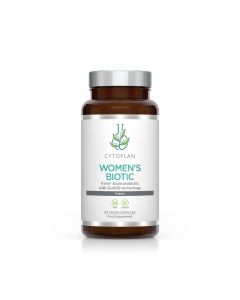Can I support my female health with a probiotic?
While having a healthy gut microbiome is essential for all of us to maintain overall health, women may particularly be able to reap the benefits of taking a probiotic supplement.
Promotes Vaginal Health – just like the gut, the vaginal microbiome requires a delicate balance of bacteria to remain healthy. For example, Lactobacilli strains secrete lactic acid, which helps to maintain the acidic environment that prevents an overgrowth of unfriendly microbes (or dysbiosis).
Probiotics can help to protect against:
Yeast Infections – which can affect around 3 out of 4 women at some point in their lives, many suffering with recurrent infections. Yeast infections are caused by an overgrowth of the fungus Candida albicans and symptoms include itching, pain and discharge. Certain probiotic strains including L. rhamnosus, L. acidophilus and L. helveticus, as well as the probiotic yeast Saccharomyces boulardii, have demonstrated antifungal action and a beneficial effect in yeast infections.
Bacterial Vaginosis (BV) – this common condition results from an overgrowth of unfriendly bacteria with a loss of the protective lactobacilli normally found in a healthy vagina. Supplementing with multi-strain probiotics has been shown to give positive and beneficial effects in BV.
Urinary Tract Infections (UTIs) – another common health concern that affects thousands of women annually. Since lactobacilli dominate the natural urogenital flora, restoring balance with a probiotic supplement rich in lactobacilli strains could protect against UTIs, preventing reoccurrence.
Promotes Gut Health – digestive concerns such as IBS tend to be more common in females than males, and an imbalanced gut microbiome may play a key role in symptoms such as constipation, bloating, flatulence, heartburn and many more. It’s also important to remember that good gut health is intrinsically connected to all areas of health.
Supports Female Reproductive Health – our gut bacteria contribute to several processes, such as nutrient absorption, as well as immune system and hormone regulation – which at a basic level can impact on fertility – but evidence is also emerging for the impact of micro-organisms in the reproductive tract. Infertility often correlates with increased levels of inflammation – and a wide variety of probiotic strains have demonstrated anti-inflammatory effects. For example, probiotics have demonstrated improved hormonal balance and glucose homeostasis in women with polycystic ovary syndrome (PCOS).
A healthy microbiota also plays a role in the regulation of oestrogen – and a dominance of oestrogen, as well as inflammation has been suggested for a number of female health conditions, including endometriosis. Lactobacillus probiotics have been shown to have beneficial effects on endometriosis-related pain and improving quality of life.










